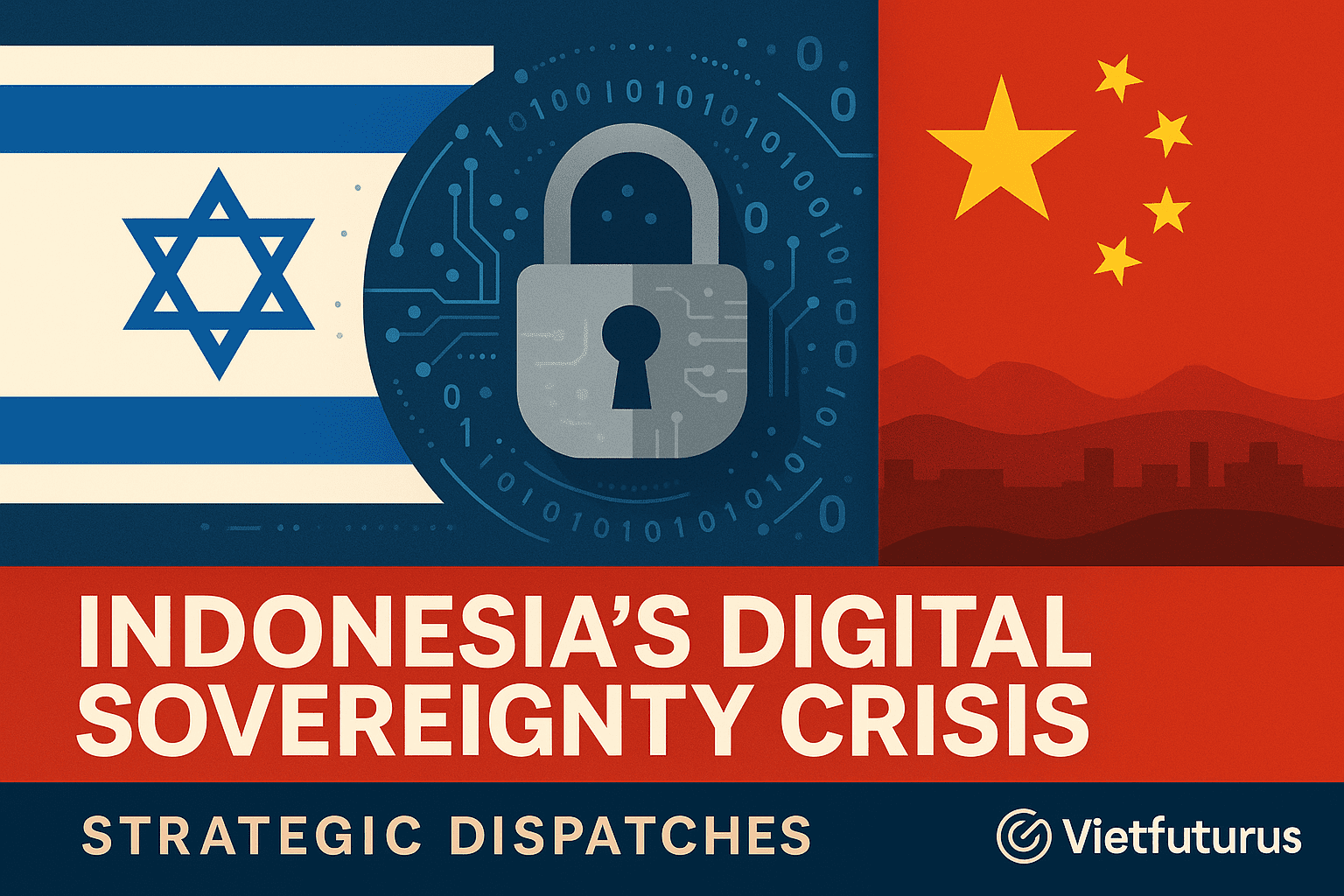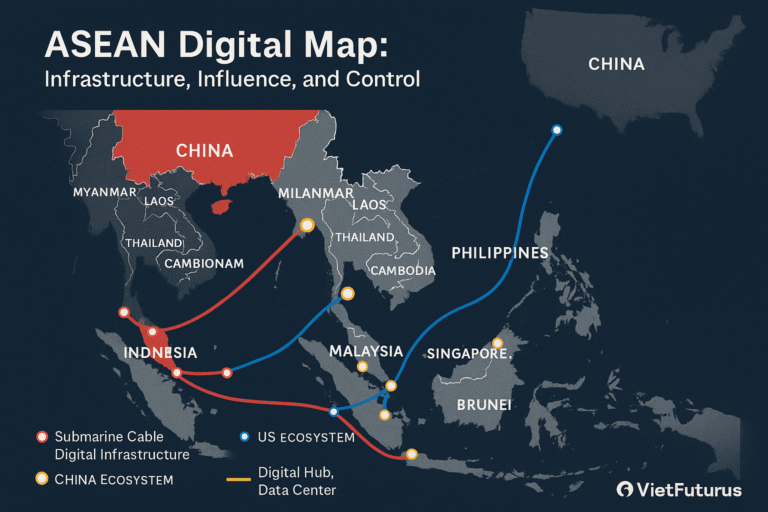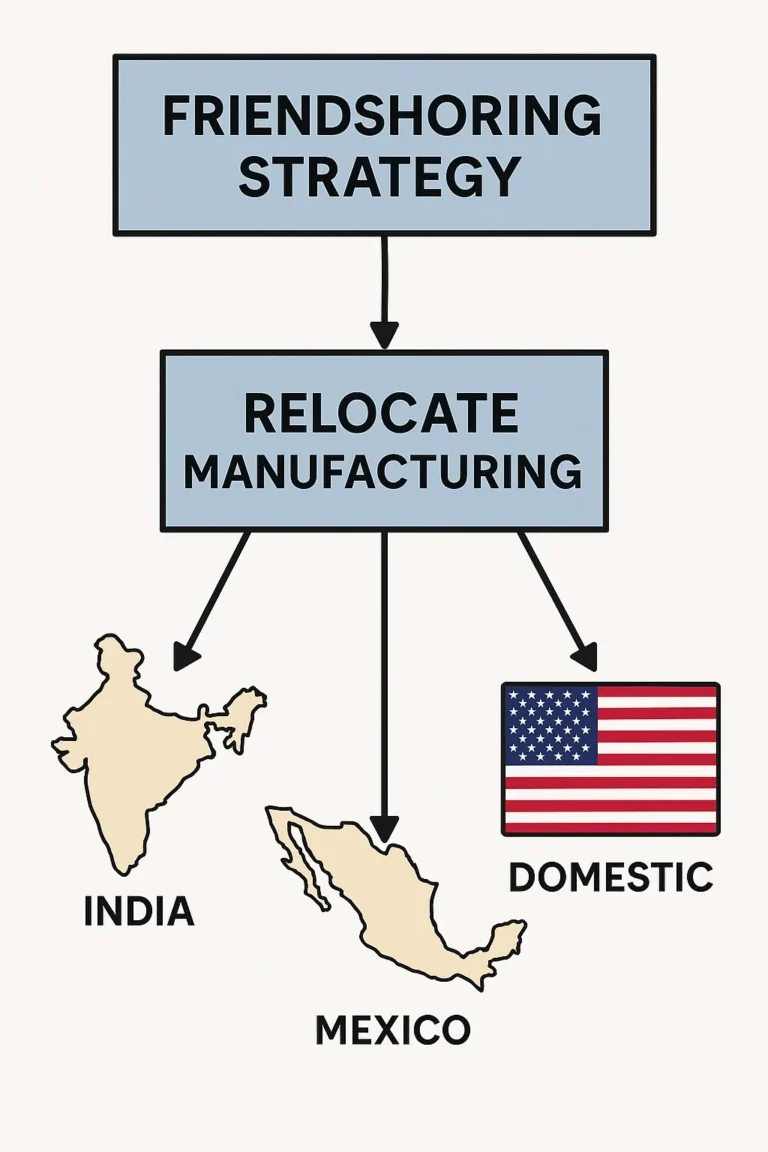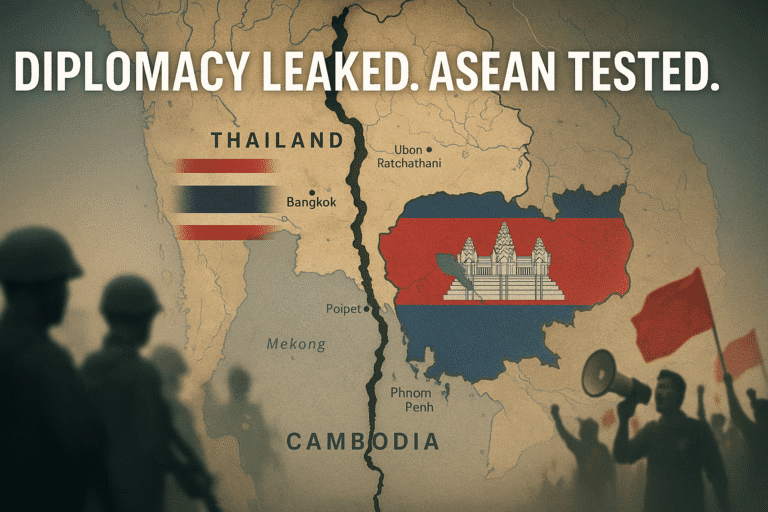Strategic Dispatches from Southeast Asia: Indonesia’s Cyber Balancing Act — Israeli Spyware, Huawei Dependency, and the Sovereignty Dilemma
Code Fragment | Strategic Dispatches from Southeast Asia
Indonesia’s digital infrastructure stands at a dangerous crossroads.
In early May 2024, a multi-agency investigation led by Haaretz and Amnesty International’s Security Lab revealed that Israeli surveillance firms, including NSO Group, Candiru, Wintego, and Intellexa, have sold advanced spyware to Indonesian state agencies — despite the lack of diplomatic ties between the two countries.
At the same time, more than 70% of Indonesia’s network backbone is supplied by Huawei, according to the Australian Strategic Policy Institute (ASPI), raising alarms about long-term strategic dependency on China.
Indonesia is building its digital future on two opposing power structures — and no one is talking about it.
Key Developments
- Israeli Spyware in Jakarta:
Documents show Indonesia deployed invasive tools from Israeli-linked vendors to surveil activists, journalists, and political figures.
The deals were conducted through European and Asian intermediaries, bypassing official channels.
(Haaretz, May 2024 | Amnesty International) - Huawei’s Deep Embedding:
Huawei remains central to Indonesia’s mobile infrastructure and e-government projects.
While cheaper and efficient, this creates dependency on Chinese firmware, updates, and potential kill-switch risks.
(ASPI, April 2024)
Strategic Implications
1. Digital Sovereignty Crisis
Indonesia lacks control over its own digital tools.
It is simultaneously vulnerable to Western-aligned spyware and Chinese-controlled network architecture.
2. Quiet Realignment Pressure
Both Israel and China are expanding soft-power leverage through cyber infrastructure.
Indonesia’s internal agencies are pragmatically transacting with both — but this dual alignment could collapse under pressure from major geopolitical blocs.
3. ASEAN Fragmentation on Cyber Norms
While Singapore and Thailand also maintain deep links with Israeli tech, Malaysia and Brunei have publicly opposed such cooperation.
This further weakens ASEAN’s ability to form a coherent digital sovereignty doctrine.
Forward Signal
If Indonesia does not publicly clarify its digital alignment:
- Global trust in its data governance will erode
- It may be excluded from future Indo-Pacific cybersecurity frameworks led by the U.S., Japan, or Quad alliances
- Civil society pressure may trigger internal probes or legal backlash against spyware use
A digital state cannot remain geopolitically neutral forever. The source code always chooses a side.
Sources & Attribution:
- Haaretz (May 2, 2024) – “Investigation: Israeli Surveillance Technology and Spyware Sold to Indonesia”
🔗 Link - Al Jazeera (May 3, 2024) – “Israeli firms sold invasive surveillance tech to Indonesia”
🔗 Link - ASPI (April 2024) – “Indonesia is hooked on Huawei”
🔗 Link







